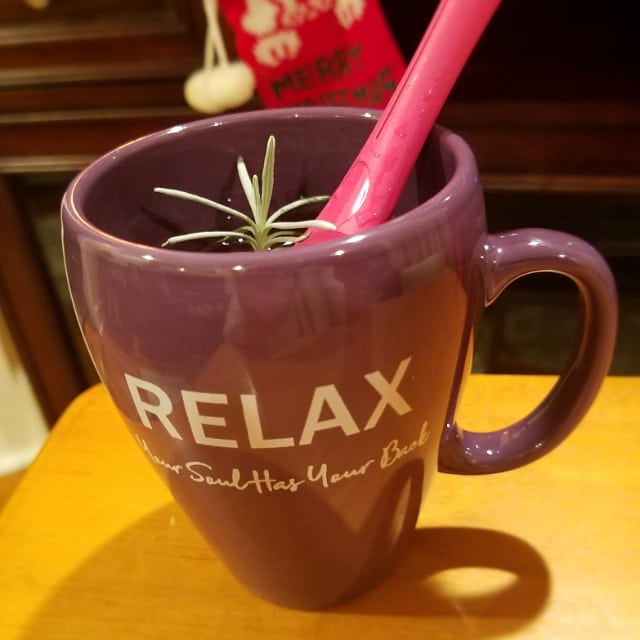© 2010 All Rights Reserved. A single copy of these materials may be reprinted for noncommercial personal use only.
When we think of the holidays we smile with nostalgic visions of celebrations, roasting chestnuts, caroling, crackling fires, happy Cleaver-like families, and everything we asked for under the ‘ol Christmas tree. As much as the holidays bring love, holiday cheer, & family gatherings so do the winter blues, stress, anxiety, and especially the financial pressure to buy gifts, travel or entertain. For many, the holidays are the hardest time of the year – emotionally, psychologically, financially, spiritually & physically. With the economy and consumer confidence at its lowest point since the great depression, families are struggling more than ever with finding a healthy balance between work, home & personal needs. Welcome to one of the most stressful periods of the year and this year is bound to be one of the most stressful. According to a 2006 survey by the American Psychological Association, 44% of women and 31% of men report increased stress over the holidays.
Stress is different for everyone and what may be stressful for one person may not be stressful for another and stress appears in many different ways. Stress is a growing epidemic taking a serious toll on our physical health, mental health, and spiritual health with the majority of Americans are living with moderate to high levels of stress according to the APA. Stress that is not managed can have dire consequences without help and change.
According to a University of California at San Diego study from 1973-2001, deaths from heart disease peak in December and January with it spiking on Christmas Day and New Year’s Day.1 Stress is linked to the top six leading causes of death and is another large contributing factor to “Merry Christmas Coronary” and the “Happy New Year Heart Attack”. “Although there can be many causes for a heart attack, stress during the holidays has become more frequently associated with a higher number of heart attack patients,” says Kelly Larkin, MD, emergency department medical director, St. Luke’s Episcopal Hospital.2
Also the increase of depression and anxiety during the holidays as well. However, despite popular belief, the increase in suicides during the holidays is a myth according to Mayo Clinic.
There is no avoiding stress, but there ways to better manage your stress levels. Oooooooook? So how do we conquer this holiday stress?
First, in order to change the effects of your stress, you have to learn to recognize and identify when you’re feeling stressed and become more aware of the signs, symptoms, and triggers. Your body tells you everything you need to know by sending you signs and signals. Are you listening to them?
Some of the early signs of stress can include:
- Unhealthy eating habits
- Irritability
- Fatigue
- Muscle tension especially in your shoulders and neck
- Headaches
 Here are some statistics from the American Psychological Association’s (APA) 2010 Survey*
Here are some statistics from the American Psychological Association’s (APA) 2010 Survey*
- Overweight Children report to be more likely to have trouble falling asleep (15%), have headaches (15%), eating too much or too little (32%), or feel angry and getting into fights (9%) than non-overweight children, which are often symptoms of stress.
- Money (76%), work (70%) and the economy (65%) remain the most cited sources of stress for Americans during this time of “Non” Depression.
- Parents report similar sources of stress citing money (80% ), work (72%), and the economy (72%) as stressors, and 73% also report that family responsibilities.
- “While the majority of parents don’t think their children are strongly affected by their stress, children report otherwise. Nearly three-quarters (69 percent) of parents say that their stress has only a slight or no impact on their children, yet 91 percent of children report they know their parent is stressed because they observe a multitude of behaviors, such as yelling, arguing and complaining.” *
- The most common reason for not managing stress well enough is “too busy or not having enough time”.
- “Two-fifths of adults reported overeating or eating unhealthy foods because of stress in the past month”.
- One-third skipped a meal due to stress in the past month.
- More than four in ten report laying awake at night in the past month.
- “The most common physical symptoms of stress reported were irritability (45%), fatigue (41%) and lack of energy or motivation (38%).”
The next step is to choose a way to deal with your stress. For instance, no matter how dire your situation, find something positive in your life to focus on and find gratitude in that. You can not change how someone treats you or what situations have been given to you, BUT you can choose how you react to them. Another way, is avoidance. However, avoiding the event or thing that gives you stress is not always possible especially if that is family. So the better way is changing your thoughts and how you react to people, things or situations.
As you go through the holiday season pay attention to you – not the ego self, but the inner you!
 Here are some tips for dealing with holiday stress:
Here are some tips for dealing with holiday stress:
- You can’t change what you can not control. So why worry? How is that going to make your situation better?
- Identify your triggers. Knowing what triggers your stress, gives you time to prepare and prevent toxic holiday stress from ruining your holidays.
- Stay positive and try to see the good in every situation.
- Eat a well balanced diet for your needs
- Get plenty of sleep
- Avoid toxins such as cigarettes, alcohol and caffeine.
- Avoid the foods that could be making you sick.
- You can say NO. Do not over commit yourself and over schedule
- Seek alternative therapies such as reiki, meditation, acupuncture or massage therapy.
- Avoid conflict and try to resolve existing conflict the best you can.
- See every adversity as a chance to grow, excel and be better than before.
- Find a healthy outlet to reduce stress such as yoga, exercise, tai chi, painting, or hiking.
- Find balance – Your mind, body, and spirit equally need relaxation and attention.
- If you have health issues such as heart disease, don’t delay seeking medical attention. The delay in seeking medical attention is cited as one of the reasons for an increase in heart related deaths.
Check out a few upcoming events that can help keep you balanced, increase clarity, reduce stress, and bring more love, peace, and understanding to your life. Meditation for instance has been clinically proven to reduce stress and is the oldest method for stress reduction around.
Laura
Healing With Spirit
Spiritual Medium, Speaker, Healer
To schedule a private session, to book a corporate wellness event, or speaking engagement, please private message me
REFERENCES:




 Finally…
Finally…






